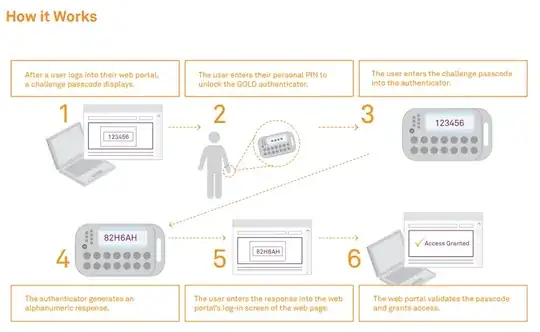When you store data on Google Docs, as you may already know, it is not encrypted at all. I read that everything you upload to Google Docs and similar services are not only yours anymore because you agree Google to own them too. This means, at first glance, Google has already access to your files since Google confesses that by itself:
When you upload, submit, store, send or receive content to or through
our Services, you give Google (and those we work with) a worldwide
license to use, host, store, reproduce, modify, create derivative
works (such as those resulting from translations, adaptations or other
changes we make so that your content works better with our Services),
communicate, publish, publicly perform, publicly display and
distribute such content.
Also, I am not American but from my understanding of the NSL, the FBI can access your data on Google Docs without even warning you.
In your case, I'd rather prefer to encrypt the data before storing it on Google Docs after choosing a strong algorithm and you found a secure way to protect your private key.
Update:
More than 24 hours after the question was asked, a user modified the title of the question giving it an other meaning than the original one:

First time I answered your question, you were online around fourty minutes while my answer was the only one available. You answered only to two comments of @schroeder but nothing else even after you received different answers dealing with different aspects of your question. Even one of your 2 comments was too confusing because you said a thing and its opposite:
if the government agency subpoena Google, then my data wouldn't be safe, am I right? No, I don't worry that the government agency will do that –
You did not react to accept it or comment it to ask something. After few users said that your question's title is not the same as its content, I asked you clarification via a comment I deleted (because it is too chatty already) but you did not react either. Following your silence to different answers and comments and your refusal to clear the ambiguity of your question, I need to update my answer by focusing on an other side you may wanted to ask, for further readers as the posts here are intended to last.
I had to focus on your question's title because good answers to so many questions as yours already exist here:
- Is it possible to recover securely deleted data from a hard drive using forensics?
- How to recover securely deleted data
- How does forensic software detect deleted files
- Is data-remanence a concern in RAM?
- How can I reliably erase all information on a hard drive?
- Prove that you deleted the file
- Ensure data doesn't linger after being deleted
- I'm leaving my job and want to erase as many personal details etc. as possible; any tips?
- Overwriting hard drive to securely delete a file?
- Secure file deletion vs wiping free space
And the list of similar questions with good answers is still so long on this website. This is just a short list I picked myself. And we all know that when you delete a file from Windows' Recycle bin (trash), it becomes invisible to your operating system only because the file allocation table does not point to it anymore, otherwise the file exist somewhere in your hard drives and you can get it back (if the OS did not override it especially if it has been a long age since you deleted it)
There is also a point I want to add to those answers about the possibility to FBI to recover your data. It is the easiest way but the answers I read elsewhere here forget it frequently:
- The easiest way for them is to use the Restore System feature of Windows. That way they could, by chance, get back your browsing history, cookies and even your secret files that you uploaded to Google Docs. By chance, I mean all depends -for the files, for instance- on the restore point you set. This is the easiest way.
Also, other answers to your question mentioned that your coockies, browsing history and browser's cache are a way for the FBI to get your data. That is true even in the case you cleared these elements from your browser because all what the FBI needs is to find where your browser stores its cache:
P.S.
If the FBI is interested to check your browsing history (supposed you hid some of your data on your secret Wordpress blog, for example), they can find where you surfed (your blog) by checking your DNS because your computer uses DNS servers to resolve hostnames to IP addresses, such queries are temporarily stored in your DNS cache. When you clear your browser history, your DNS cache is not touched. You can try this command yourself: ipconfig /displaydns to display the contents of the DNS resolver cache. Do not forget also that the FBI can check your router logs (even if in most routers this functionality is deactivated by default). This can be useful for them in case you downloaded some data you are not allowed to access, or in case you stored your secret data elsewhere before you upload it to Google Docs, or simply they can find a proof you used Google Docs. One thing to mention also: your browsing history still can be detected in case your ISP, the government, or whoever else decides to cache your list of browsed sites. Finally, some files of your operating system such as Index.dat (hidden file) contain all of the Web sites that you have ever visited. Every URL and every Web page is listed there.
